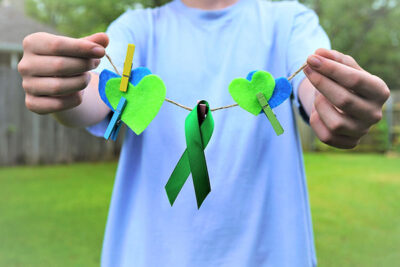Pediatric Non-Hodgkin Lymphoma Atlanta, GA
What Is Non-Hodgkin Lymphoma?
Non-Hodgkin lymphoma is a type of cancer that occurs in the white blood cells of the lymphatic system. This system, which is part of the immune system, works to eliminate harmful substances like bacteria and viruses from the body.
The lymphatic system is made up of several components, including:
- Lymph nodes (lymph glands)
- Thymus gland
- Spleen
- Tonsils
- Adenoids
- Bone marrow
- Lymph vessels (tubes that link parts of the lymphatic system)
While Hodgkin lymphoma features a specific type of cancer cell called Reed-Sternberg cells, non-Hodgkin lymphomas do not have these cells.
Signs and Symptoms of Non-Hodgkin Lymphoma
The symptoms of non-Hodgkin lymphoma in children vary depending on where the cancer is located. Some children may report abdominal pain, constipation, or a reduced appetite. Others might struggle with breathing or swallowing, or experience coughing, wheezing, or chest discomfort.
Common symptoms of non-Hodgkin lymphoma in kids may include:
- Swollen lymph nodes in areas such as the neck, armpit, or groin
- Fever, chills, or sweating during the night
- Persistent itching
- Unexplained weight loss
- Fatigue
What Causes Non-Hodgkin Lymphoma?
This form of cancer typically results from genetic changes in white blood cells as they grow. The exact reasons behind these changes are not fully understood.
Non-Hodgkin lymphoma in children in Atlanta may be more prevalent among kids with conditions such as:
- Immune system issues
- HIV infection
- Use of immunosuppressive medication after organ transplants
- Previous cancer treatments, including radiation or chemotherapy
- Epstein-Barr virus infection (mononucleosis)
How Is Non-Hodgkin Lymphoma Diagnosed?
Doctors start by looking for indicators like swollen lymph nodes, breathing difficulties, or swelling in areas such as the belly, face, hands, or feet.
For a swollen lymph node with no clear cause, the doctor will observe it to see if its size changes over time. If the swelling does not go down or gets worse, a biopsy is performed.
A biopsy may involve a needle aspiration in the doctor’s office under local anesthesia or surgical removal in an operating room.
When non-Hodgkin lymphoma is confirmed, further testing helps to determine if the disease has spread and identify the specific type of lymphoma. These tests might include the following:
- Blood tests to check blood cell counts and evaluate kidney and liver function
- Imaging tests, such as ultrasound, CT scans, MRI, or X-rays
- Bone marrow biopsies or aspirations
- Scans like PET or bone scans, using radioactive material to look for cancer cells throughout the body
Pediatric Non-Hodgkin Lymphoma Treatment in Atlanta
A pediatric oncologist, specialized in treating childhood cancers, collaborates with other specialists to treat non-Hodgkin lymphoma in kids in Atlanta.
Staging helps determine whether and how far the lymphoma has spread, guiding the medical team in selecting the most effective treatment options.
Options for childhood non-Hodgkin lymphoma treatment in Atlanta may include the following approaches:
- Chemotherapy: Anti-cancer medicines that target and destroy cancer cells or prevent their growth.
- Radiation therapy: High-energy rays are used to target and kill cancer cells.
- Targeted therapy: Medicines specifically designed to attack cancer cells without harming normal cells.
- Immunotherapy: Treatments that enable the child’s immune system to fight cancer cells.
- Stem cell transplants: Healthy stem cells are introduced into the body.
- Surgery: Sometimes, part of the tumor can be surgically removed.
- Clinical trials: Participation in clinical studies testing new treatments or comparing innovative therapies against current methods, with a focus on minimizing side effects.
After completing treatment, children who have had non-Hodgkin lymphoma require lifelong follow-up care to ensure the cancer does not return. Regular checkups are vital for ongoing monitoring.
For expert care and childhood non-Hodgkin lymphoma treatment in Atlanta, families can consult specialized pediatric oncology centers offering tailored support and comprehensive services.
Expert Care for Pediatric Non-Hodgkin Lymphoma in Atlanta
When it comes to treating pediatric non-Hodgkin lymphoma, seeking specialized care is crucial. Atlanta offers expert pediatric oncology teams that provide personalized treatment options to ensure the best outcomes for your child. For additional support, our pediatric ENT in Atlanta can assist with related health concerns. Contact us today for more information.
FAQ’s About Non-Hodgkin Lymphoma Treatment in Atlanta, GA
What Types of Non-Hodgkin Lymphoma Are Common in Children?
The most common types of non-Hodgkin lymphoma in kids in Atlanta include Burkitt lymphoma, diffuse large B-cell lymphoma, and lymphoblastic lymphoma. These types differ in how they start and progress, requiring tailored pediatric care.
Is Non-Hodgkin Lymphoma in Children Curable?
Yes, pediatric non-Hodgkin lymphoma in Atlanta is often curable, with many children achieving long-term remission through early and effective treatment. Outcomes improve significantly with specialized, comprehensive care tailored to the child’s specific condition.
What Causes Non-Hodgkin Lymphoma in Children and How Can It Be Managed?
Non-Hodgkin lymphoma in children in Atlanta can result from immune system abnormalities or genetic factors. Management includes timely diagnosis, targeted therapy, and ongoing support to ensure the treatment addresses the child’s individual needs.
What Are the Treatment Options for Pediatric Non-Hodgkin Lymphoma?
Childhood non-Hodgkin lymphoma treatment in Atlanta involves a combination of chemotherapy, immunotherapy, and sometimes radiation. Our team provides expert care to help kids achieve the best outcomes. Contact us today for compassionate, specialized care in Atlanta!


